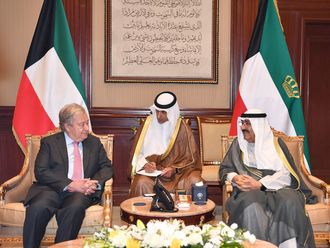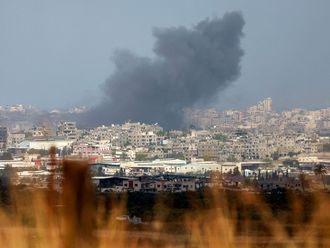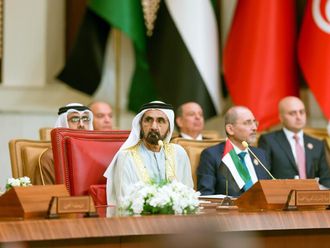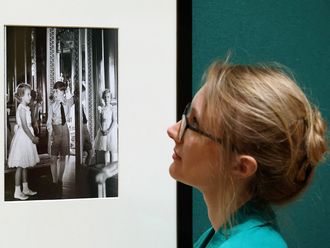Manama: Seven Kuwaiti consumers’ cooperative societies on Tuesday said that they were boycotting Iranian products to protest against “the role of Iran and the Hezbollah militia in suppressing the Syrian revolution.”
“We will not sell any Iranian product and we are suspending deals with companies that provide them,” Al Riqqa, Sabah Al Salem, Sabah Al Nasser, Al Aridhiya, Bayan, Al Andalus and Khaitan said in a statement issued in the capital Kuwait City.
“The boycott decision is in line with the announcement by the Gulf Cooperation Council (GCC) about drying up the sources of income for Iran in the Arabian Gulf countries. It is also against Hezbollah that relies completely on Iranian support to sustain its power and funds,” they said, Kuwaiti news site Al Aan reported.
The cooperative societies are set up by people to serve the community by selling goods at lower prices.
Yasser Al Kindari, the chair of Bayan Cooperative Society, said that the campaign to boycott all Iranian products aimed to force the Iranian leaders to reconsider their support for the Syrian regime.
“We want them to look at how they are supporting and participating with the Syrian regime as it has been killing its own people for two years,” he said. “Iran has now gone public with its military support through its arm, Hezbollah, after claiming for a long time that it did not interfere in the conflict. Its weapons are now killing Syrian people and contributing to their daily torture by a regime whose atrocities have surpassed those perpetrated by the Nazis,” he said in remarks published by Al Aan.
Al Kindari added that every fils spent on any Iranian product meant a bullet to the chest of a Syrian.
“The Syrian people have been ill-treated and they rose for the sake of their dignity and to take their rights back. However, the regime retaliated by bombing them, destroying their homes and turning them into refugees in other countries,” he said.
“The least we can do is to boycott Iranian products. Opting not to buy Iranian products is a peaceful and civil way to react to Iran’s contribution to the killing of Syrians.”
Al Kindari said that he hoped all Kuwaitis and foreign residents in Kuwait would support the boycott campaign.
“The Syrians cry for your assistance and they appeal to your conscience regardless of your sects to help them. The boycott of Iranian products is one of the ways to assist the injured, the wounded and the homeless,” he said.
One of the announcements said that the next step in the campaign would be to dismiss Iranian labourers working at the societies and cancel their residency permits.
Around 50,000 Iranians work in Kuwait, mostly in low-paid jobs. Iranian exports to Kuwait are not huge and mainly comprise fish and food products.
Meanwhile, dozens of Islamist activists demonstrated outside the Lebanese embassy late Tuesday in protest at the military intervention of Shiite Hezbollah fighters on the side of Syrian regime forces against rebels.
Protesters burned posters of Hezbollah chief Hassan Nasrallah.
Sunni Muslims, who form more than 70 percent of the 1.2 million Kuwaitis, have been angered by the Syrian government onslaught on fellow Sunni rebels and the support Assad has received from Iran and Hezbollah.
Sunni clerics have launched fund-raising campaigns on the Internet and through mosques to aid the Syrian people as well as the rebellion.
Around a dozen well-known Kuwaiti Sunni clerics have launched an online campaign to raise funds enough to arm 12,000 fighters and send them to Syria. Each fighter is estimated to cost $2,500.
The Gulf Cooperation Council states said on Monday they will take measures against members of Hezbollah.
The measures will affect their “residency permits, and financial and commercial transactions,” said a GCC statement, citing a ministerial council decision.
- With inputs from AFP












